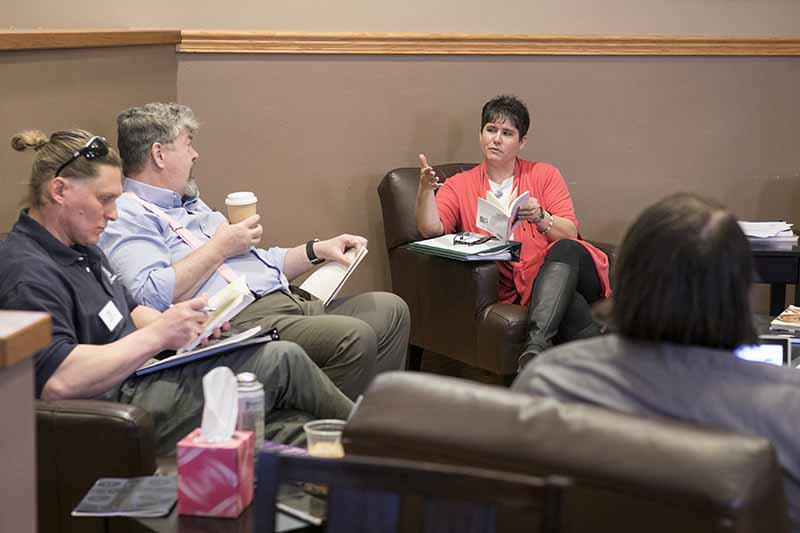Is Anybody Listening?
Deacon Jim & Ann Cavera
Thursday, June 15, 2023

Billions of clips have been watched on YouTube from millions of homemade videos. By now, cyberspace must be clogged with blogs, tweets and twitters available for reading by anyone, anywhere. Everybody wants to talk. No one seems to care whether or not they are being heard and fewer still seem to care much about what is being said.
People are curious in an impersonal way about what all of this chatter means. Everyone accesses information, but is anyone really listening? The truth is we sometimes feel bombarded with too much in the name of communication.
Lately, we have been more concerned about a different kind of listening that seems to be dwindling. We have memories from our childhoods of being alongside our parents and observing how adults behaved. We enjoyed listening to their conversations. One of Jim's favorite memories is of going to a coffee shop before dawn with his father to hang out with the other Italian produce buyers.
Sitting on a stool at the counter with the men, Jim listened and heard what men out working for their families thought and said. I remember helping the women in the kitchen at family gatherings. Shelling peas or peeling potatoes provided an excuse to hear what really concerned my grandmother and aunts.
Some time ago, I attended a luncheon for a few women in a small town. We gathered at our host's gracious home at 11:30 a.m. and didn't leave until about 3:30 p.m. In between, I learned more about family triumph and tragedy in a small town than if I had spent weeks delving into local genealogy. It was all there for the listening.
We appreciate modern communication, but much listening still needs to be done in the physical company of others. Listening involves the eyes and heart as well as the ears. A raised eyebrow, frown or a tremor in a voice conveys far more than a text message on a cell phone.
Listeners have to let go of personal agendas and journey into the joy and sorrow of someone else. To listen means to value the person who needs to be heard. Perhaps our children lack self-esteem because many of them have never felt the value that comes from someone listening to them.
If we are no longer able to listen to each other, how can we hear the more subtle voice of God? People heard Christ, but often missed his message. From scripture, we remember the Israelites listening to Joshua as he spoke words that bound them to their homeland and to their God. What about King David, and his son Solomon, or the prophets?
Mary sat at Jesus feet while her sister worked in the kitchen, Paul heard the voice of God on the road to Damascus. Though Peter and the Apostles in the upper room had no form of mass communication, they were the first to receive news of a new covenant. We can't help but think God may still be speaking. Are we too distracted to listen?